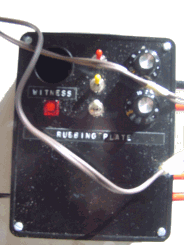How to plan for the future

Using Steven Gibbs HDR, I have seen a recurring scenario, mainly one of massive megadisasters with a dramatic drop in global population. However, the question is how do we prepare for upcoming events?
First of all we need to plan both short tem and long term. Instead of buying a hybrid car, they are very expensive, I prefer to buy a used scooter approx $300 and a used bike approx $30.
Fuel will be in short supply due to disruptions in the Persian Gulf area. An electric powered scooter will give you the ability to travel many miles without getting tired.
After collapse of society we need to think what is important. In our current society we have what is know as an asset allocation model, you put part of your money in {real estate, stocks, bonds, metals, & cash} If you put all your money in real estate and you need to get some out, it might be months before the property is sold, contrawise, if you put all your money in cash, the bank pays such a low rate of return that you lose money - due to inflation - rather than make money each year.
But let us imagine a world without any infrastructure after the crash, how do we allocate our resources? Dollars are worthless, there are plenty of empty houses around, no stock market, and gold is a lot cheaper than it is now because people cannot eat gold.
Let me give you an idea of prices after the crash. Let us say that a can of tuna costs $1 now, and in 2026 you can buy five cans of tuna with a gold ounce coin, so gold goes from $500 an ounce to about $5 an ounce in term of food.
It would cost me about three cans of tuna to get a hummer, but there is very little fuel, and about one can of tuna to get a bicycle. I believe the bicycle is a better buy - fuelless transport.
The average wage is three ounces of gold a day, sounds like a lot, until you realize that that an ouncer gold coin can buy you a dozen eggs. On the plus side, a house costs only 5 gold coins. There are lots of empty prewar houses.
John Titor said that in 2036 hand drills and manual typewritters were very valuable. Actually, people are more interested in finding food than in sending a letter as there is no more post office and no guv.
Your asset allocation model should be heavily weighted toward commodities, as in cans of tuna. :)






0 comments:
Post a Comment